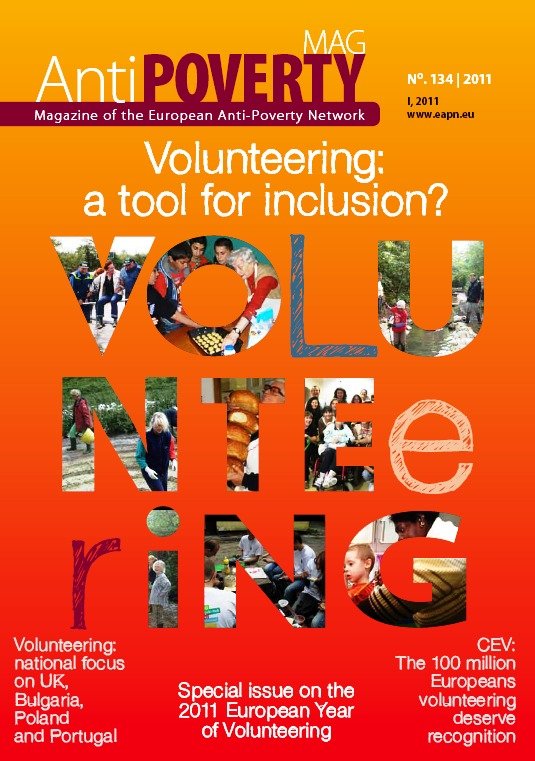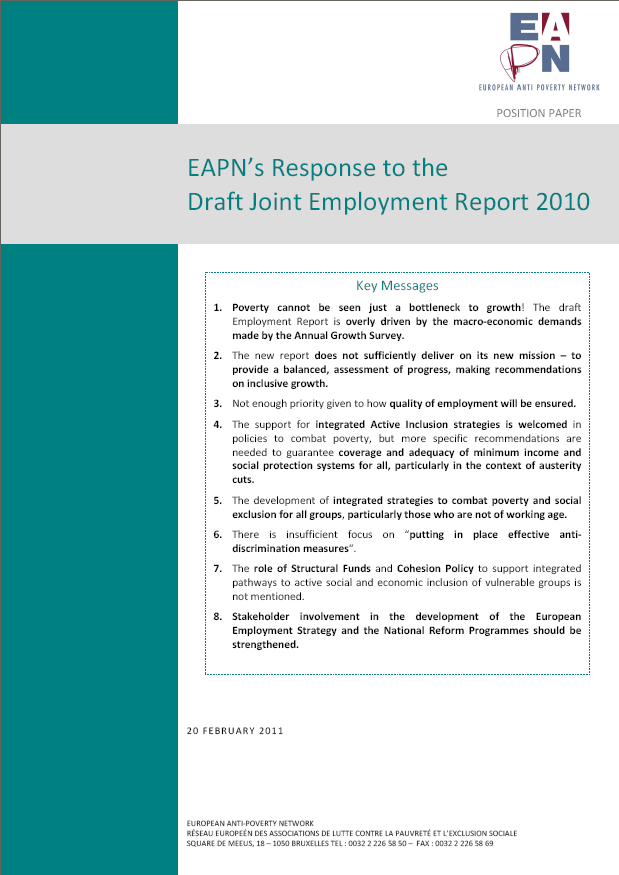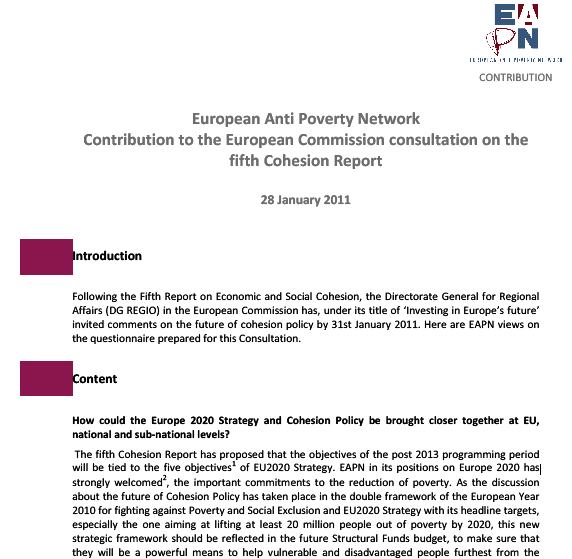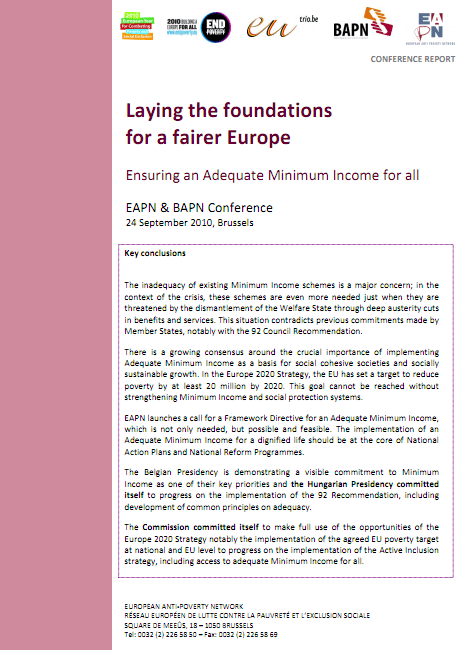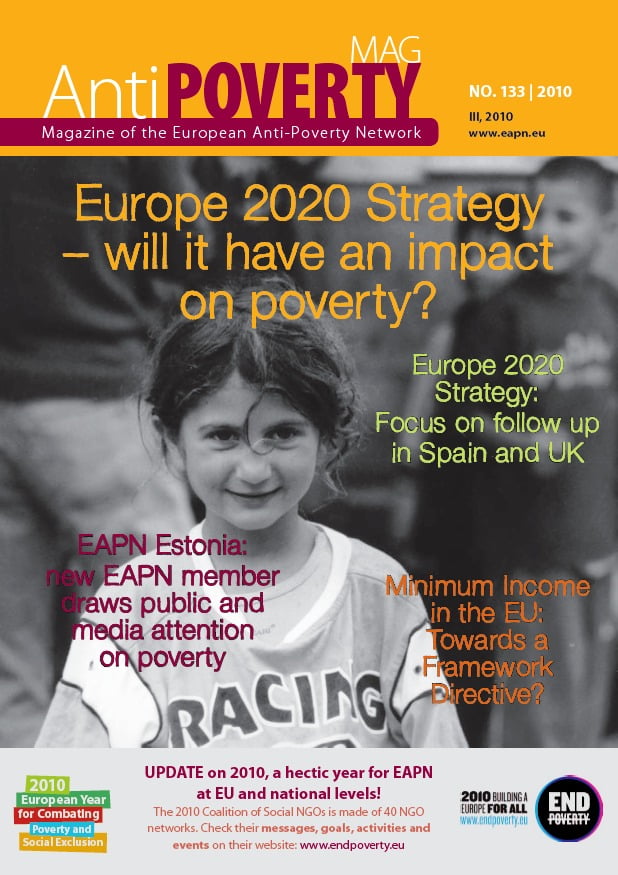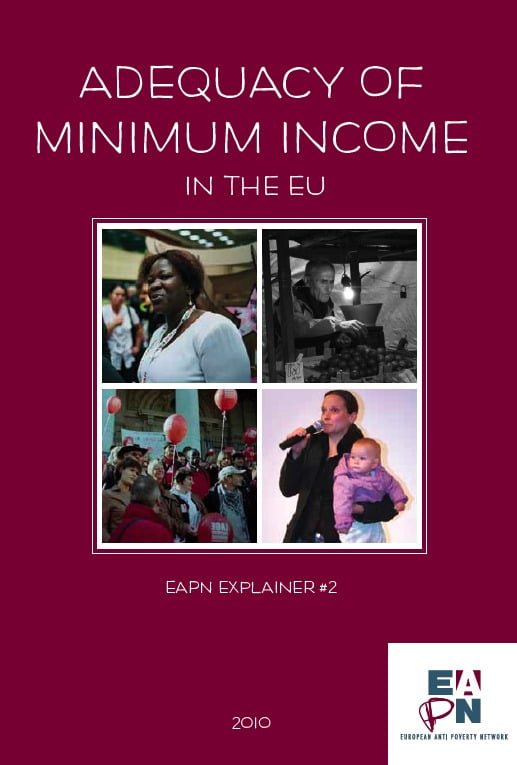MAG 1/2011 – Volunteering: a tool for inclusion?
{jathumbnail}In 2011, the spotlight shifts from Poverty and Social Exclusion to Volunteering, with the baton passed from the EU Year for combating poverty and social exclusion to the EU Year of volunteering. What is the link? How can we build on the strengths of volunteering yet guard against the risks of abuse in the context of current attacks on Europe’s welfare State and social model?

